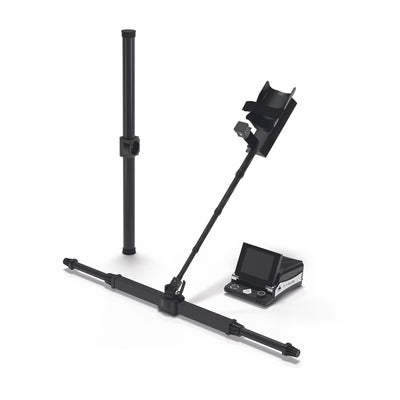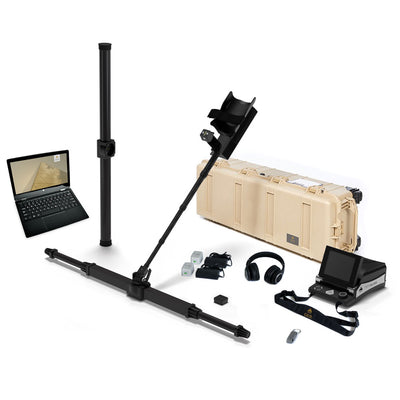Cavity Detectors
Cavity detectors are the best equipment for archaeologists, treasure hunters and also industrial users to detect underground structures. While metal detectors only indicate ferrous or precious metals, cavity detectors and ground scanners locate interesting sites even if they are completely free of metals.
OKM ground scanners detect cavities down to 82 ft (25 m) deep.
Human construction activities very often leave voids. These can be larger structures such as corridors, cellars, bunkers, tunnels and caves, or smaller structures such as buried vessels and covered pits. In OKM ground scanners, a metal detector is integrated in the measurement instrument and thus simultaneously provides indications of locations of metallic objects or precious metal-bearing mineral layers.
These underground structures can be found with OKM cavity detectors and ground scanners:
- Cellars
- Trenches
- Tunnels and vaults
- Bunkers
- Conduits and catacombs
- Caves
- Burial chambers, tombs and sarcophagi
- Historical foundations
- Treasuries, depots of treasures and valuables
- Militaria
- Remains of ancient breweries, food stores or wine cellars
- Evidence of places of craft activity
- Groundwater
- Defects in dikes
- Construction ground risks
OKM has a wide range of cavity detectors and ground scanners available for your individual search project. The detectors differ depending on the area of application: from water detectors to metal detectors to high-end devices with multiple probes, it is your choice how to search for hidden evidence of the past.
Detectable Objects
Operating Mode
Product Type
Special Feature
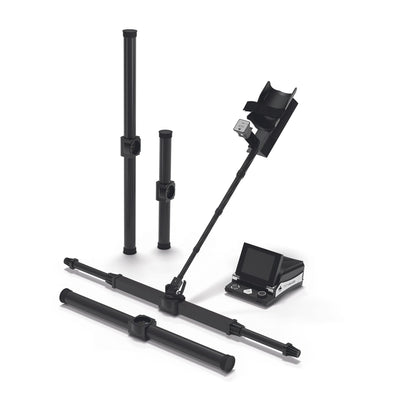
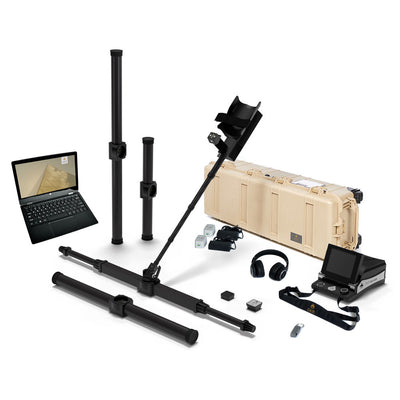
OKM eXp 6000 Professional Plus
Best Detector with various modes including vertical and horizontal scan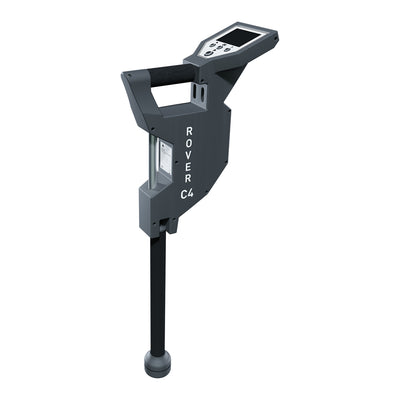
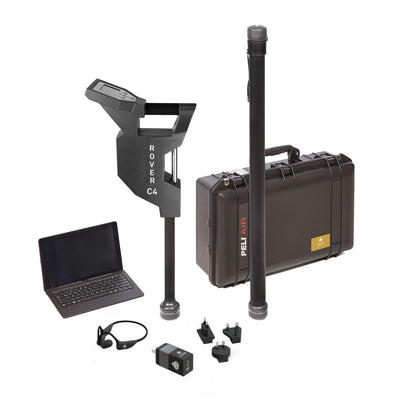
OKM Rover C4
Gold Detector and Absolute Favorite for Treasure Hunting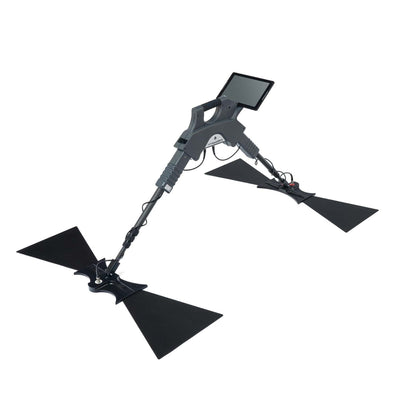
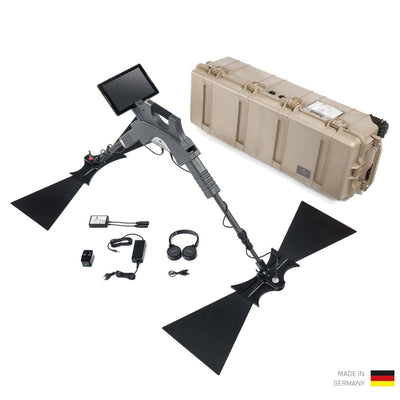
OKM Gepard GPR 3D
Ground Penetrating Radar with Depth Performance down to 40 m (132 ft)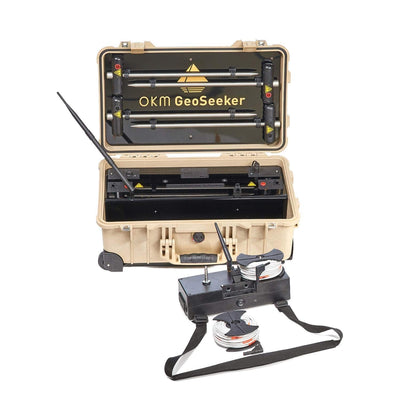
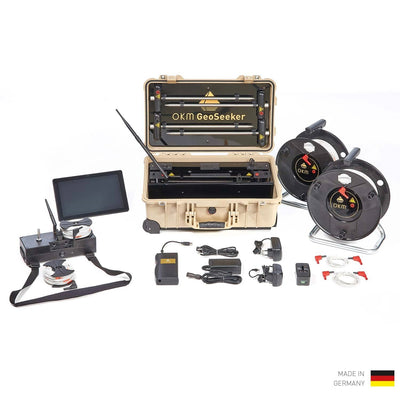
OKM GeoSeeker
Water Detector down to 250m (820 ft)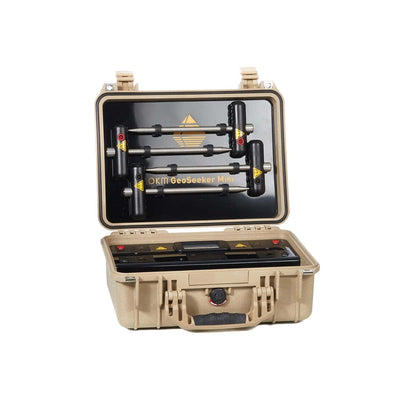
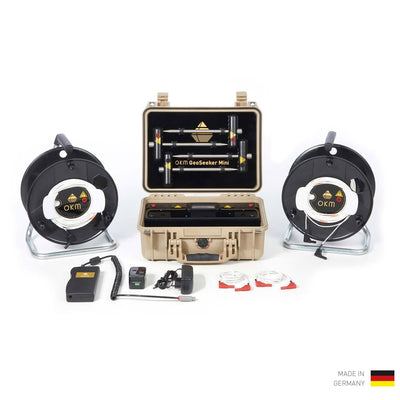
OKM GeoSeeker Mini
Water Detector for depths down to 100 m (328 ft)
Meaningful soil investigations are provided thanks to OKM's powerful detectors, which meet the highest demands with their functionalities. The ground scanners assist in the detection of foundations, archaeological finds and militaria even before excavation, because the results of the measurement are displayed directly on the screen. With the accompanying software, the 3D representation allows for precise probe orientation during use. The detectors also offer wireless transfer of the scan results to a tablet or notebook. In this way, the burial chamber or tunnel can already be identified during the ground measurement. The signals of the further operating modes such as magnetometer and pinpointer also provide an overview of the target area.
The Best Detector for Your Search
No matter what the task in detecting finds, there is an appropriate type of detector. This means that all applications and use cases can be covered in the best possible way:
- Treasure hunting
- Detection of militaria
- Historical mapping
- Securing of finds
- Construction industry
Search Procedure
At the beginning of a search the map material has to be studied and the search area has to be explored, if necessary for a preliminary search with a metal detector. Often historical reports about burial chambers, records of contemporary witnesses or reports about bunkers are also valuable.
- Are former uses of the target area known?
- Does the site surface reveal noticeable irregularities that could be the result of human activity?
- Are there unexplained changes in vegetation?
- Does the ventilation of old shafts lead to temperature differences on the ground?
This knowledge is incorporated into the search plan. According to its specifications, the area is systematically scanned with the cavity detector or the ground scanner. The measured values provide indications of modifications such as those caused by historical foundations or bunkers. Alternatively, the ground scanner can be used to pinpoint locations where individual objects or buried treasures have been found.
Based on the search results, the user decides where uncovering or excavating offers the chance of finding a rarity. This may well involve some effort in digging. But in the end, the joy of finding a rarity rewards you.
Tips and tricks for scanning with the detector for cavities can be found in our OKM Blog. Here treasure hunters and excavation specialists report on their approaches, projects and successes. Exchange ideas, share experiences and become part of the community that searches for traces of the past!
Special Case: Soil Investigation
A special task for ground scanners, as for all other search devices and measuring instruments, is the investigation of construction soil. The question here is how resilient the soil is. The detector detects old foundations or cavities of demolished buildings, objects left behind or even militaria. And, of course, the remains of historic buildings whose existence has long been forgotten.
All of these findings give an indication of whether special precautions need to be taken during construction engineering. The position of the groundwater level can also be determined by means of ground scanning. This helps to protect structures from defects in sealing to the subsoil and from subsidence damage. In the case of dikes and dams, detectors can find disturbances in the subsoil that indicate a decline in the stability of the protective structures.
These topics may also interest you
Since the beginning of time, people hid in caves and tunnels, they built burial chambers to bury their ancestors along with valuable goods, and they built bunkers and shelters to protect themselves from enemies. Many of these underground facilities were sealed and the entrances destroyed. Over time, their existence was forgotten, but they are still there, right under your feet.
Learn more about Cavity Detection: Lost Places beneath your feet
